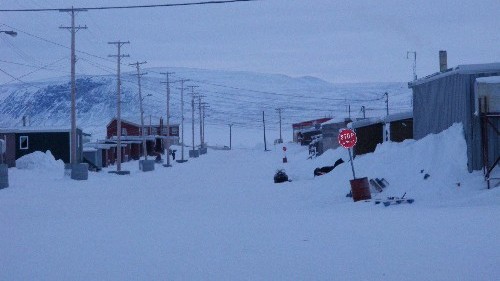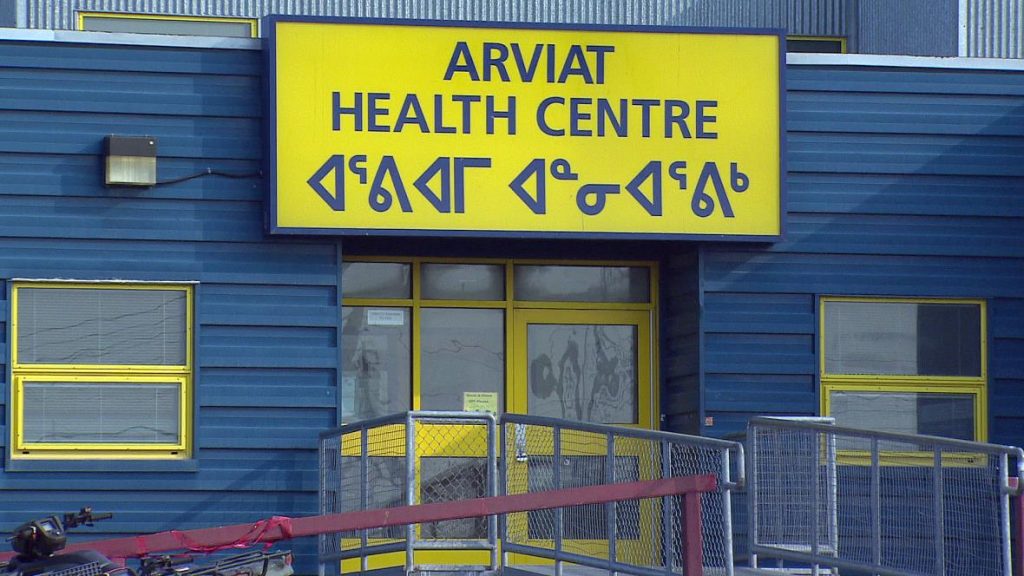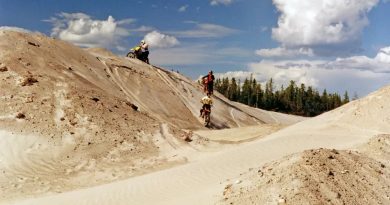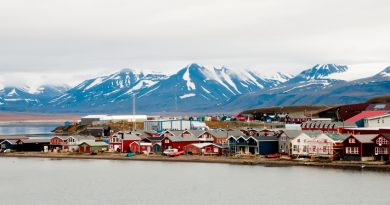There’s a risk of people dying’ says Clyde River SAO as nursing shortage in Nunavut, Canada continues

8 health centres run by nurses expected to temporarily shut their doors if staff aren’t found
A nursing shortage is affecting the country’s most northern communities, with eight health centres run by nurses expected to temporarily shut their doors if staff aren’t found to keep them open.
In Clyde River, a community of just over 1,000 people on Baffin Island in Nunavut, the health centre is set to close for two weeks, except for emergencies, starting Monday.
Jerry Natanine, a former mayor of Clyde River who works as the hamlet’s senior administrative officer, said he’s worried about residents who rely on the centre for care.
He said the centre is typically staffed by three to four nurses but will have one or two during the closure.
“We have a right to receive appropriate health benefits in a timely manner,” Natanine told The Canadian Press. “It’s terrifying for us to think what could happen to us within that closure.”
Each of Nunavut’s 25 fly-in communities has a health centre run by nursing staff, while the only hospital for its 40,000 people is in Iqaluit.
Natanine said Clyde River has seen its health centre close in the past, but he can’t remember it shuttering for as long.
He also worries about residents being potentially exposed to COVID-19 if they are flown to another community, or, in more serious, cases, to another province or territory. There haven’t been any cases of COVID-19 in Nunavut for nearly two months.
“The way we see it, there’s a risk of people dying,” he said.

Sanikiluaq, an island community in Hudson Bay, has a new health centre that is also scheduled to close except for emergencies until the end of August.
“It will be especially hard with the shortage of nurses,” said Sanikiluaq Mayor Johnnie Cookie.
He added that nurses can’t be stationed at the new building until housing for them is also built.
Instead, nurses are living at the community’s old health centre. When a call comes in from a patient, nurses meet them at the new facility.
“People experience delays having to wait outdoors of the centre. And when calls are not replied to, some people call the RCMP for them to contact the nurse,” Cookie said.
Recruitment ‘a real struggle’
Nunavut Health Minister Lorne Kusugak said the government is working to recruit nurses to staff the health centres that are scheduled to close.
“Our goal is to not have any closed,” Kusugak said.
If they do shut their doors, he said, patients will be supported by paramedics. They’ll also have the option of virtual care.
The situation is “fluid,” he added, as some health centres are working with a skeleton staff but are still open.
“There’s a nursing shortage right across the country. We’re all trying to recruit the same people and it’s becoming a real struggle,” Kusugak said.
Health staff ‘exasperated’
Bill Fennell, president of the Nunavut Employees Union, said although the stress of the pandemic has caused more nurses than usual to leave the territory, losing health care staff isn’t a new issue in Nunavut.
Health care staff in communities can be constantly on call and sometimes experience harassment or abuse, Fennell said.
“They’ve been exasperated by COVID because of the long hours, especially in communities where there were outbreaks,” he said.
“It’s not just the nurses. It’s the cleaners, the lab people — everybody who is working twice as much as they are normally.”
Kusugak also said Nunavut faced a shortage of health care staff even before the pandemic.
“Every year we get a slow down of nurses and a shortage. But because of this pandemic, it’s become even more visible,” Kusugak said.
Despite the shortage, Natanine said he wants communities to treat health care staff with respect and hopes to attract more nurses to the territory.
“I’m so grateful that we have them,” he said. “I’m glad the government doesn’t look at us and say, ‘Those people in the middle of nowhere — let’s forget them.”‘
Related stories from around the North:
Canada: On the frontlines of health care : A Nunavik, Canada nurse remembers relocation, racism and the rewards of healing, CBC News
Finland: Psychologists in Finland sign climate petition, citing concerns for youth mental health, Yle News
Sweden: 2018 drought took toll on Swedish farmers’ mental and fiscal health, research say, Radio Sweden
Russia: Why high suicide rates in Arctic Russia?, Deutsche Welle’s Iceblogger
United States: Alaska capital budget vetoes to hit homelessness, addiction treatment, Alaska Public Media



